Democratic Candidates for U.S. Senate Debate
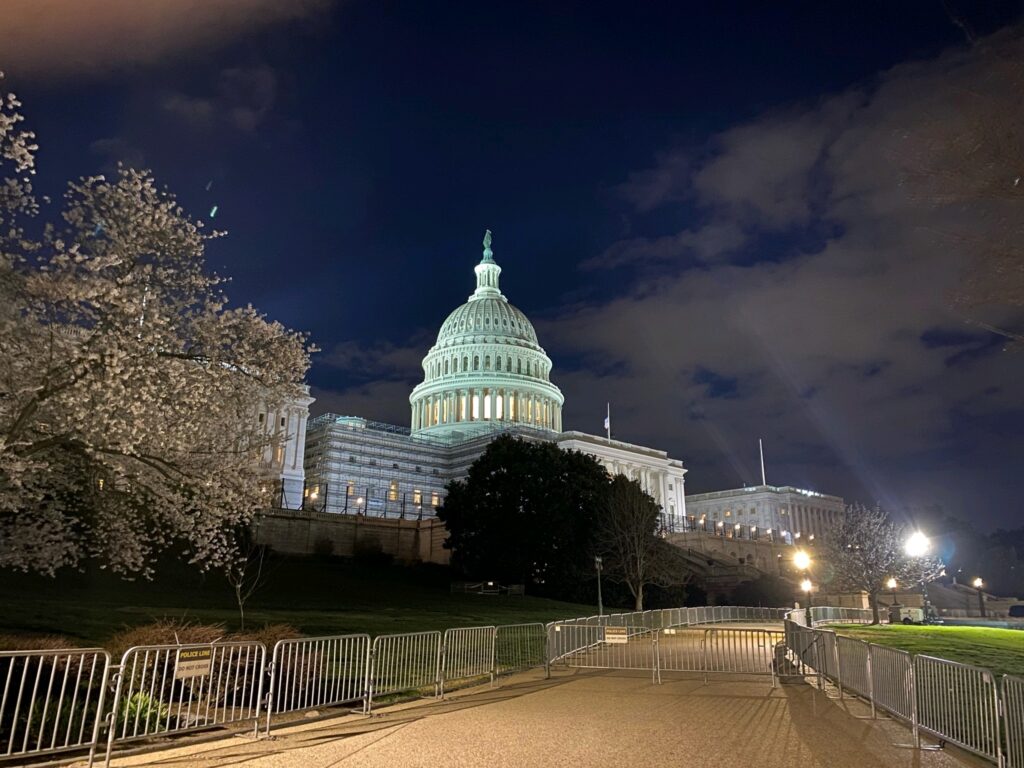
Monday evening’s ACLU of NJ Vote Your Values: 2024 NJ Democratic Senate Primary Debate held at the South Orange Performing Arts Center was moderated by Michael Hill of WNYC. The candidates, since the departure of First Lady Tammy Murphy from the Democratic primary, were Congressman Andy Kim, Dr. Patricia Campos-Medina, and Lawrence Hamm.
The debate, overall, was strictly regulated and Hill maintained firm control, enforcing the policies in
[caption id="attachment_101591" align="alignright" width="252"]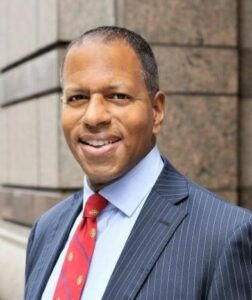 Michael Hill[/caption]
Michael Hill[/caption]
place to ensure a refreshingly mature, intelligent, and respectful debate with minimal disruption and interruption.
In the opening remarks, Campos-Medina described herself as a “Jersey Girl,” the only woman in the race, and characterized her campaign as the working-class champion for minorities and women against the super-wealthy. Larry Hamm led with his 53 years of activism and advocacy on the streets, pushing for an “official living wage,” free college, expanded rights, ending wars, and reparations for the descendants of slaves. Congressman Kim laid out his own personal experience as the son of immigrants who has benefitted from America’s opportunities, his record in the House of Representatives, and his ability to win, having come out ahead in a district which went to Donald Trump. Kim also took aim at the former president as well as embattled Senator Robert Menendez.
Hill laid out a series of questions, offering each candidate equal time and, when necessary and appropriate, an opportunity to respond to comments made by other candidates. Hill did not, however, allow the candidates to ask questions of each other, as Larry Hamm attempted to do with Congressman Kim at one point.
[caption id="attachment_157987" align="alignnone" width="1024"]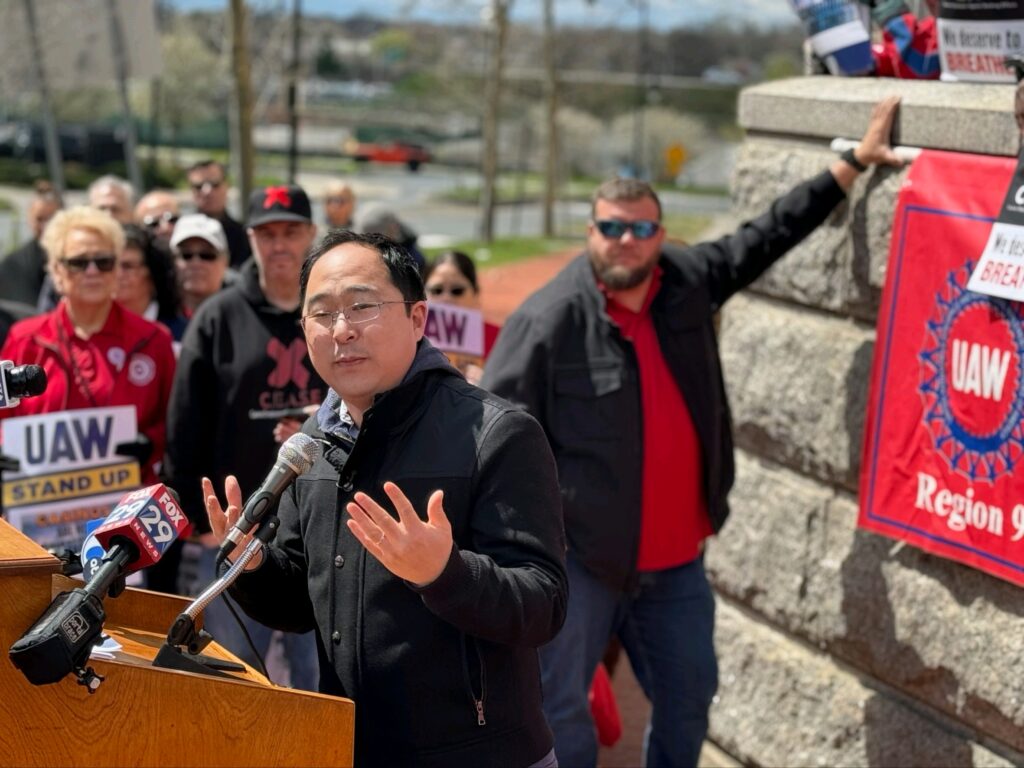 Kim.[/caption]
Kim.[/caption]
In terms of policy, there were few serious diversions among the three candidates overall. Perhaps this would come as no surprise. All the candidates agreed they would support repealing the SALT cap, but each candidate then went on to outline their point of view regarding affordability in the state. For Campos-Medina, she wanted to also include rolling back corporate tax breaks and address inequalities within the economy. She supported Biden’s Inflation Reduction Act, but said there was more to be done. Hamm echoed Jimmy McMillan of New York, saying, “Our property taxes are too damn high. Rents are too damn high. Mortgages are too damn high. The cost of housing is too damn high. We need legislation to provide more tax relief for homeowners.” Hamm said that New Jersey has one of the highest rates of foreclosures and evictions in the country, a matter he would tackle if elected. For his part, Congressman Kim said that the SALT cap was brought on by the Trump administration to “punish” blue states. Republicans, he said, had derailed efforts of Democrats like him. “I was proud to push forward on the Child Tax Credit, for instance,” Kim said, “something that was able to cut child poverty in half in America. And what did the Republicans do when they took power? They immediately went to stop it, to cut it.”
On immigration, all the candidates agreed on the need for reform. Kim lamented that his colleagues in Congress were condemning immigrants and migrants coming to the country, while also not wanting to solve the problem as it provided a useful political football. “We even heard Donald Trump say that he doesn't want the Republicans in Congress to actually vote and try to come up with any solutions… because he wants to continue to harp on this. When I think about it, it's very clear to people across the political spectrum that we've come to understand that we want an orderly process.” He noted that the shortage of judges has made the backlog of cases extremely difficult and long to handle.
Campos-Medina noted that she herself suffered from family separation, coming to this country. “I am committed to fighting for immigration reform that is just and humane. In order to address the border crisis, we need to do two things. We need to invest in our resettlement programs and we need to adjudicate silent asylum cases in a manner that keeps families together and address the fundamental reasons why families are seeking asylum.” She said that the US also must partner and invest in Latin American countries to advance economic and democratic liberty which should help stem outbound migration. She also condemned Donald Trump’s “hateful rhetoric” such as claiming immigrants were “poisoning the blood” of America.
[caption id="attachment_156131" align="alignnone" width="1024"]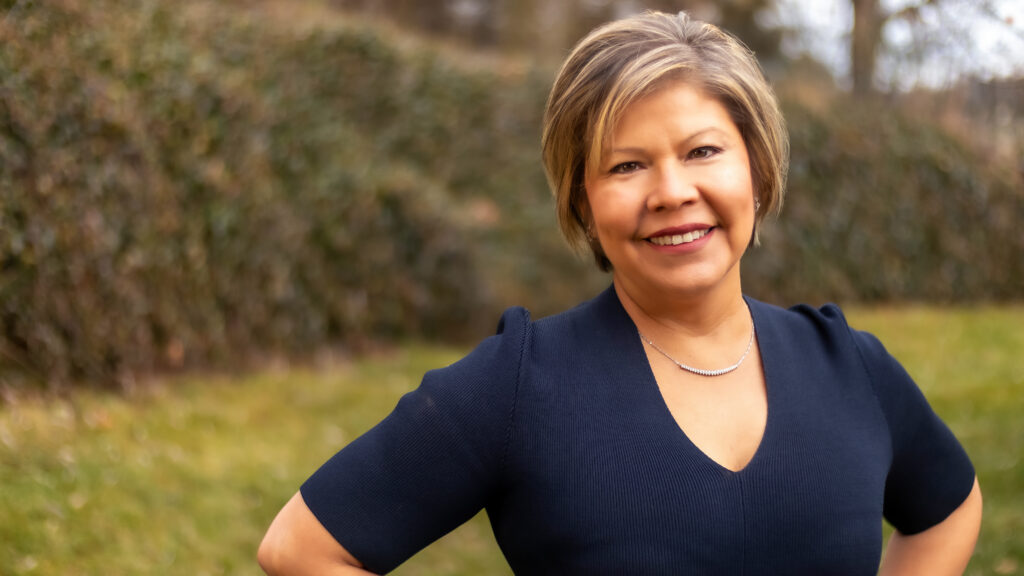 Campos-Medina.[/caption]
Campos-Medina.[/caption]
Hamm said that there is an immigration crisis, and that policy must be “based on recognition of human rights, international law, our domestic law and bilateral agreements. If we have an immigration policy based on human rights, then we would not separate families at the border.” Without naming Governor Abbott of Texas, he condemned the state for putting up wire at the border. “But everyone knows our social services are being stretched right now,” he said. “Immigration is the purview of the federal government. So, the federal government should provide resources to our local governments so that we can meet the needs of new arrivals.”
On the high levels of black maternal and infant mortality, Hamm said the racial gap in infant and maternal mortality is due to healthcare facility disparities. He would propose a National Healthcare Infrastructure Development and Protection Act, if elected. “If we are the richest country in the world we should have the best medical in the world.”
Again using the position of incumbency, Kim said he has seen the dangers of the most extreme Speakers of the House trying to gut maternal health. There’s an omnibus to invest in this very area, Kim said, who noted that Democrats in the House have been trying to push back against the Republican agenda to cut such legislation down.
Campos-Medina said that she was told the administrative costs are too high in largely black communities. “Because the cost of administration of processing private insurances through Obamacare or employment, or even some Medicaid is so big they spend more time processing claims and on the phone with insurance companies than actually treating patients for preventive illness as before they end up in a hospital or they end up sick.” She said that this particularly impacts black women. The solution, she said, is a form of Medicare for All to standardize the payment process.
Hill asked the candidates if aid to Israel should be withheld if they do not address the humanitarian crisis in Gaza. Congressman Kim voted for sending military aid to Israel, but said that future aid in terms of offensive weaponry should be withheld and that more humanitarian assistance has to reach Gaza. He said he does not support an attack on Rafah, but does believe Israeli defensive weapons technology to protect against Iranian attack is appropriate.
[caption id="attachment_116213" align="alignnone" width="1024"]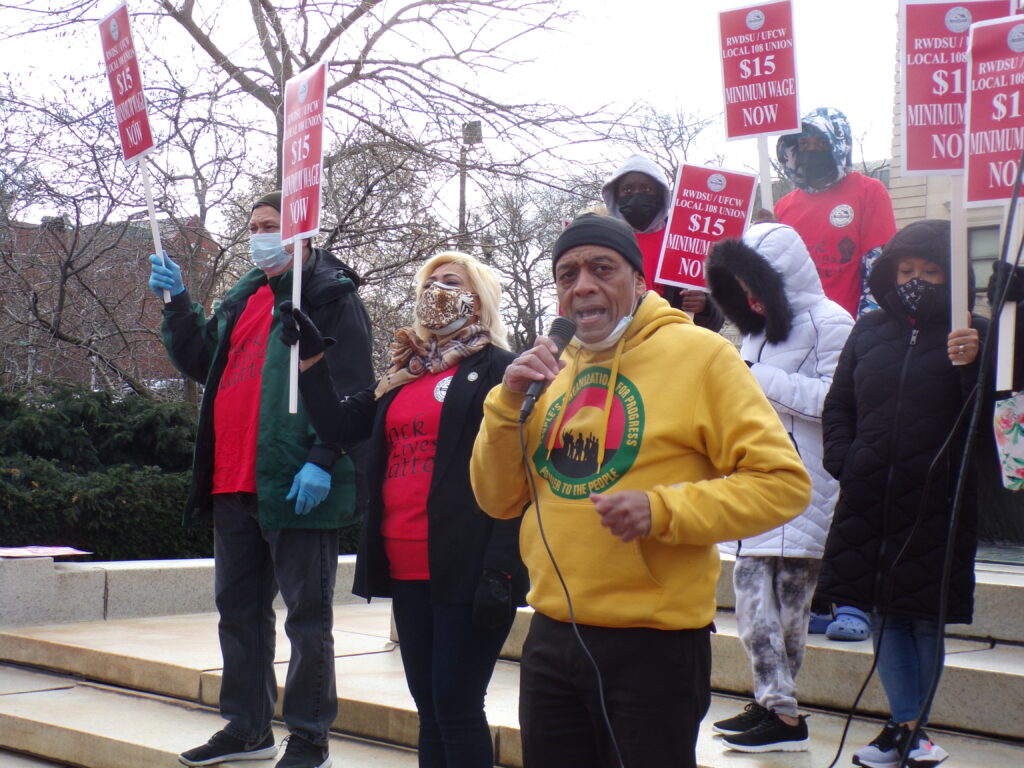 Hamm.[/caption]
Hamm.[/caption]
Hamm, however, unequivocally opposes aid to Israel. When asked if there could be a greater, regional conflict if the US pulled away from Israel, he countered, saying continuing to aid Israel would increase the chances of a regional conflict. He condemned the action, calling it “a genocidal war” and added that he would be joining Princeton University students in a hunger strike, opposing Israel’s military action.
Campos-Medina said she is for a permanent ceasefire in Gaza. “It is imperative to value the lives of Palestinians,” and she said withholding aid to Palestinians was causing a humanitarian crisis. She also said, looking domestically, protesting war is a tradition in the US.
Kim continued, said that we were at an important moment. “There is no military solution alone, an agreement is needed.” Kim said that regional cooperation and strategies were necessary to move forward. Campos-Medina said that if Israel wants Hamas to release their hostages, the IDF will have to stop their bombing campaign first. Hamm, however, went much further, saying, “We must end the illegal occupation of Palestine. That is the root cause of the problem. And if we don't deal with that, we will continue to return to this place that we are at now. We must end the occupation, we must end Israeli apartheid, there must be a right of return for the millions of Palestinian refugees that are in other countries. There must be an end to the illegal settlements. If we do not do that, there won't be peace.”
Hill raised the topic of police brutality and social justice in the country. Hamm said that police killed more people last year than any year before, on record. He called for the the reintroduction of the George Floyd Justice in Policing Act and a national standard for use of force. Without this, he said, it is difficult to deal with police brutality in the courts. He said that there should also be civilian oversight of all police forces.
Kim said that political movement has been stymied because of the filibuster. “I think all of us would agree that we want to make sure that we move forward with the George Floyd Justice in Policing Act, something that we worked tirelessly on with the Congressional Black Caucus and others to be able to put this together. We were able to pass it through the House of Representatives, but it died on delivery in the Senate.” Kim said that this is seen repeatedly on issues like reproductive rights and immigration and can only be overcome with reform of the filibuster. To see this done, he said, Democrats have to win elections.
Campos-Medina said she was concerned about urban youth and community investment for economic mobility and after school programs. “Fundamentally, we need to give communities more opportunities for review boards to hold police accountable” in bias cases and use of force. She also decried the use of military equipment given to police departments, calling for additional investment in mental health and de-escalation tactics.
Hill moved onto the topic of climate change and wind energy, an effort the Murphy administration has been wrestling with as far as off-shore windmills were concerned. Kim praised the Inflation Reduction Act as a good move forward. He said there is talk in the legislature of new bills to take that farther, noting that NJ is a net importer of energy. Wind, he said, is an option to help our state and become a regional and national leader which would also help with job creation. He called for more to be done to electrify the transportation sector and said the federal government should step up to make sure we are driving energy innovation for the future, something good for the environment and the economy.
Campos-Medina said she is the Executive Director of the Working Institute at Cornell University. “I am proud to say that we have spent 10 years developing the footprint for working together with the labor movement and community groups to advance green energy creation that creates union jobs. We need the federal government to actually invest more in our green energy and wind energy in making sure that we are creating a manufacturing base that creates union jobs across the green energy spectrum.” She said the Inflation Reduction Act was a start but states should be incentivized to stay ahead of the curve while promoting union jobs.
Hamm said, “We must break our dependence on fossil fuel.” So much current legislation under the banner of saving the environment is “green washing.” Hamm warned that we are pumping more oil now than before and are doing so at our peril. “Oil lobbyists have a death grip on our congress. We have to break that, get money out of our political system.” To help do so, Hamm said he would introduce legislation to overturn Citizens United as a first step.
Kim agreed but said Democrats have to also be able to win elections to be able to do that. “We can’t wave a magic wand, we have to build majorities to get things done.” Kim said it is possible, repeating that he was one of 7 Democrats to win in a Trump district. “Let’s go win elections.” Campos-Medina took a swipe at Kim’s consensus approach and said, “We need to win elections, that's for sure. But we need to win elections with working class voters who are concerned and want to fight corporate America’s greed in our politics. We do not need more candidates to go to Washington DC and make deals with MAGA Republicans. We do not need a middle-of-the-road Democrat to go cut deals with Republicans, what we need is to energize the Democratic base of workers, blue collar workers, urban voters, who actually want us to go fight corporate American greed in our politics.” Hamm turned up the heat on Kim further, saying, “What Congressman Kim said, is that essence, maybe even the quintessence, of why it's so difficult to really make change. We’re caught in a system where we're damned if we do, and we're damned if we don't. We want to move away from fossil fuels. But we can't because we’ve got to win elections. If this logic persists, we will face extinction.”
Kim responded in turn, disputing Hamm’s interpretation. “I want to make sure that we have a clean environment for my kids to grow up in. So, let's work together. You know I reject taking corporate PAC money. I've pushed forward for strong governance reform efforts. Let's work together to be able to build the kind of electorate, to energize people, and I think the three of us have done a lot to be able to do that over the course of this primary. Let's keep that momentum going.”
Hill said that black families are 11% of households but have 2% of household wealth. He asked what the candidates would do to fix the disparity.
Campos-Medina said that buying a home is getting harder and harder each year. “We need to do more to incentivize first time homebuyers, help them with their payments, and figuring out how to get mortgages that are low cost. We also need to end the discrimination on home buying for black families.” She said the federal government can invest in tax incentives with states and municipalities to get developers to create mixed income housing. She also said that student debt should be forgiven as that is holding back black women in particular from generating wealth even though they have a college education.
Congressman Kim agreed, adding that a lot of work was being done to energize small businesses. “That's something that Maxine Waters and others have been leading the charge on, and I've certainly been standing with them on that. A lot of the work that we've been trying to do is to energize Small Business efforts throughout our communities and engage in these types of ways to be able to make sure that there are more opportunities. Again, we just saw the disparity study here in New Jersey, there are huge differences in terms of where government contracts are missing the mark when it comes to black and brown communities in particular.”
Hamm said he likewise agreed with the previous statements. “My mother always said, it's better to light a candle than to curse the darkness. But I want you to consider this,” he added. “The National Urban League came out with its 2024 report. It said at the current rate of social progress, it will take 180 years to close the wealth gap between black and white families in the United States. In lieu of that, I support reparations for African Americans. I support reparations, and I support HR 40. But I say this, if I am your representative to the United States Senate, I will introduce a reparations bill to make reparations payments to the descendants of those who were enslaved in the United States of America.”
To wind down the debate, Hill introduced some speedy yes-or-no questions. All the candidates agreed they would support expanding the Supreme Court, with Kim adding he wanted term limits for justices. All three supported filibuster reform. All three supported unfettered access to abortion. All three supported reparations for the descendants of slaves. None of the candidates agreed to expand the legal definition of antisemitism in anti-discrimination law to include objections to Israel's right to exist.





